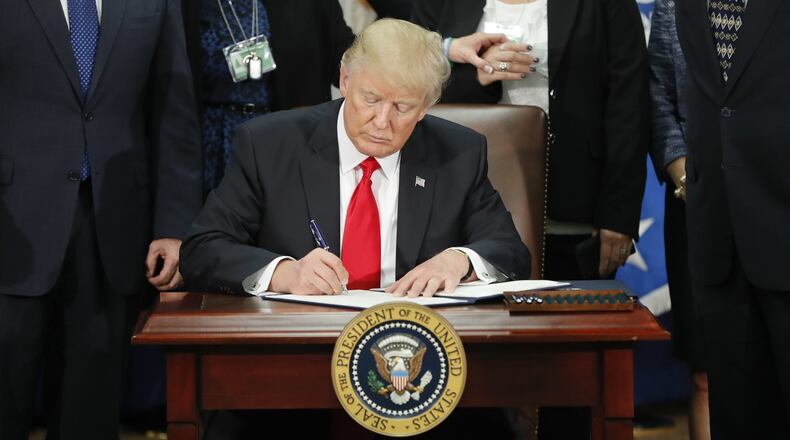President Donald Trump tweeted over the weekend that the U.S. court system would be to blame if something bad happens while his travel ban is kept on hold amid a legal battle.
“Just cannot believe a judge would put our country in such peril,” Trump tweeted about U.S. District Court Judge James Robart after the judge on Friday issued a nationwide temporary restraining order halting the travel ban. “If something happens blame him and court system. People pouring in. Bad!”
The parts of Trump’s executive order the judge put on hold would: block people from seven predominantly Muslim countries from entering the U.S. for 90 days: Iraq, Syria, Iran, Sudan, Libya, Somalia and Yemen; bar any refugees from resettling in the U.S. for 120 days; and indefinitely stop Syrian refugees from resettling here.
But what harm have people from these countries done in the U.S.? Two recent reports provide some answers:
Since the Sept. 11 terrorist attacks, no one in the U.S. has been killed by extremists with family backgrounds in the those seven countries, according to a report published this month by Charles Kurzman, a sociology professor at the University of North Carolina and a specialist in Islamic movements. Entitled "Muslim-American Involvement with Violent Extremism," the report says only 23 percent of Muslim-Americans involved in violent extremist plots during that timeframe had family backgrounds in those countries.
The Cato Institute, a libertarian group based in Washington, released a report just two days before Trump signed his executive order. It says that between 1975 and 2015, no one from the seven countries covered in the travel ban killed any Americans in terrorist attacks on U.S. soil. Six Iranians, six Sudanese, two Somalis, two Iraqis, and one Yemini, according to the report, were convicted of attempting or carrying out terrorist attacks here during that timeframe.
Further, the annual chance of an American dying in a terrorist attack committed by a refugee is one in 3.6 billion, the report says.
“A rational evaluation of national security threats is not the basis for Trump’s orders, as the risk is fairly small but the cost is great,” wrote Alex Nowrasteh, an immigration policy analyst at the Cato Institute’s Center for Global Liberty and Prosperity. “The measures taken here will have virtually no effect on improving U.S. national security.”
About the Author
Keep Reading
The Latest
Featured



